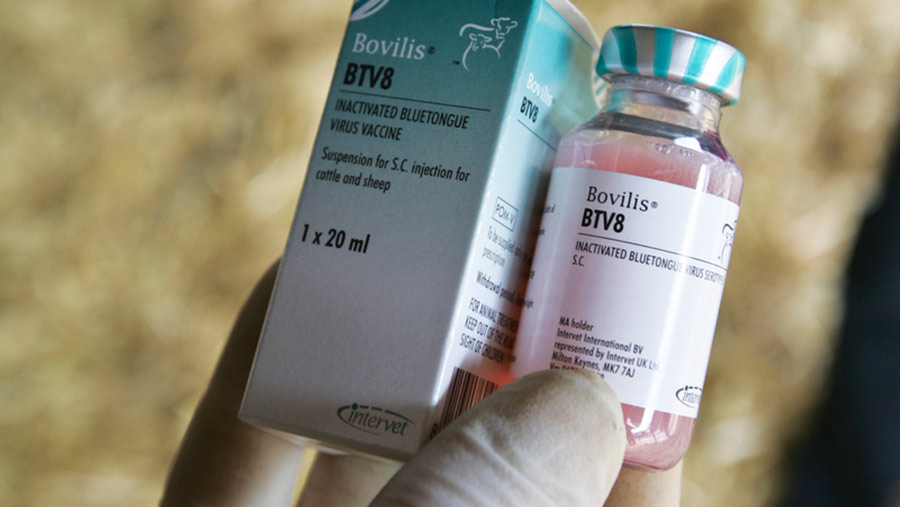UK’s ‘lucky’ bluetongue streak will run out, say scientists
 ©Tim Scrivener
©Tim Scrivener British livestock farming’s lucky streak in dodging a major bluetongue virus (BTV) outbreak will come to an end by the year 2100, warn scientific papers.
Two recent studies are warning future generations of UK sheep and cattle farmers to be vigilant in the face of increased BTV risk because of climate change.
A one-in-twenty-year outbreak could become “typical” in less than 60 years, said Dr Anne Jones from the Department of Mathematical sciences at the University of Liverpool.
See also: Bluetongue virus detected in French sheep imports
A study published in the journal Nature Climate Change explored the risk of BTV transmission if the climate changes, predicting that by 2100 the disease will:
- Extend further north
- Have a transmission season up to three months longer
- Achieve larger outbreaks
The report said there will be higher risk from BTV in northern Europe as the climate warms.
Vaccination is the main method of prevention for the notifiable disease, according to Nadis (the National Animal Disease Information Service).
See also: Advice on bluetongue risk and vaccination
How to spot bluetongue virus
- Fever (up to 40C)
- Nasal discharge
- Head and neck swelling
- Conjunctivitis
- Mouth swelling and ulceration
- Swollen teats
- Saliva drooling
- Abortion
Source: Nadis
Lucky escape
Another paper published in the journal Scientific Reports listed three fortunate circumstances that ensured the BTV outbreak of 2007 was contained to just 135 farms.
- Bluetongue crossed over from continental Europe to southeast England, an area of relatively low farm density, thus reducing opportunities for infected midges to spread the virus.
- The summer of 2007 had below-average temperatures, which helped contain the outbreak. in comparison, the 2006 European heatwave is thought to have played a significant role in boosting BTV transmission.
- Movement restrictions were already in place because of the 2007 foot-and-mouth disease outbreak.
“Had the virus entered the UK in the west of England, the outbreak would probably have been much larger,” said study author Dr Joanne Turner from the Institute of Infection and Global Health.
“Had any of these three circumstances been different it could have been a much bleaker story and it’s easy to imagine that in future the UK may not be so lucky.”
